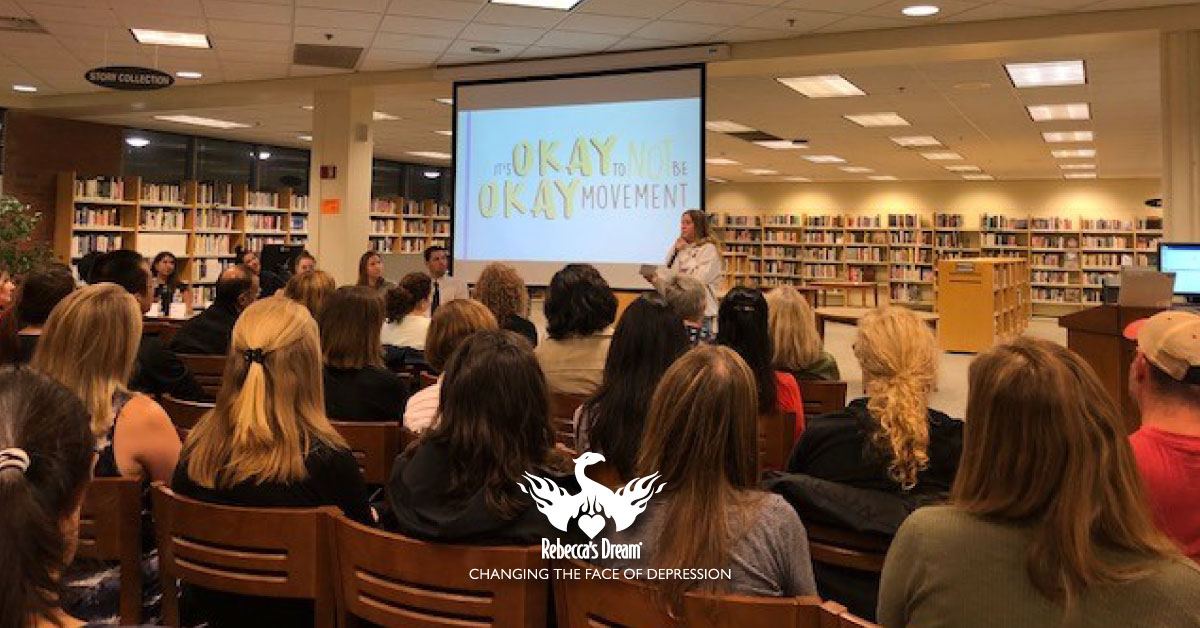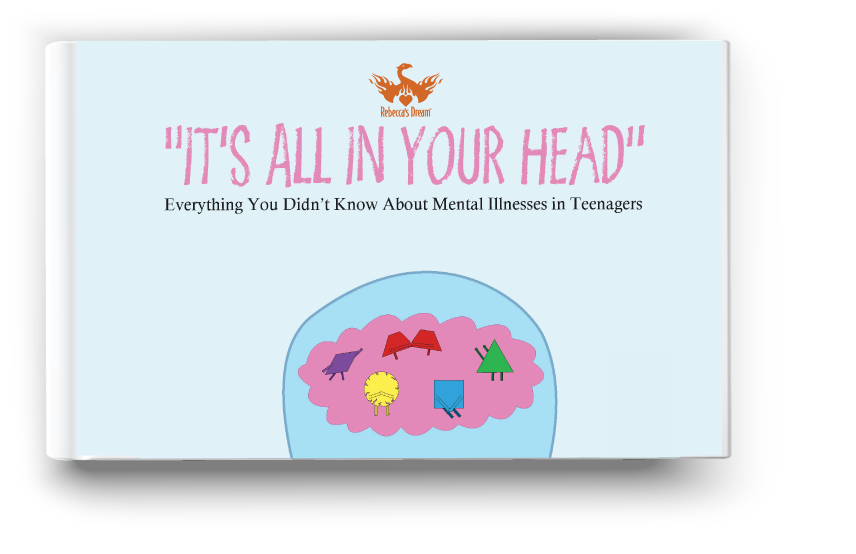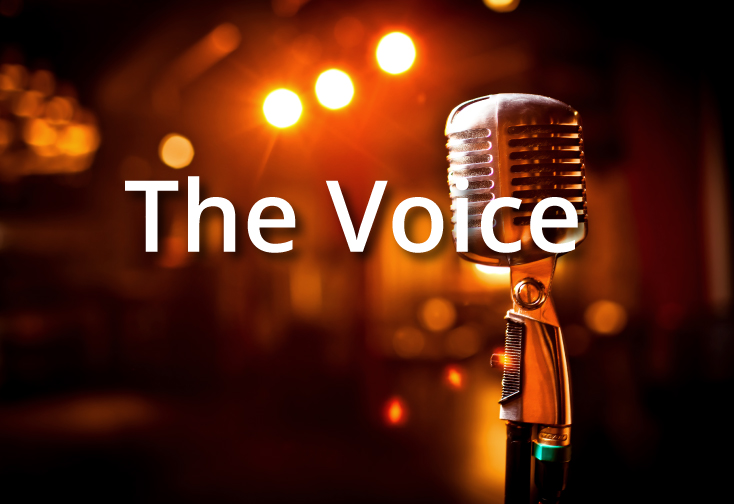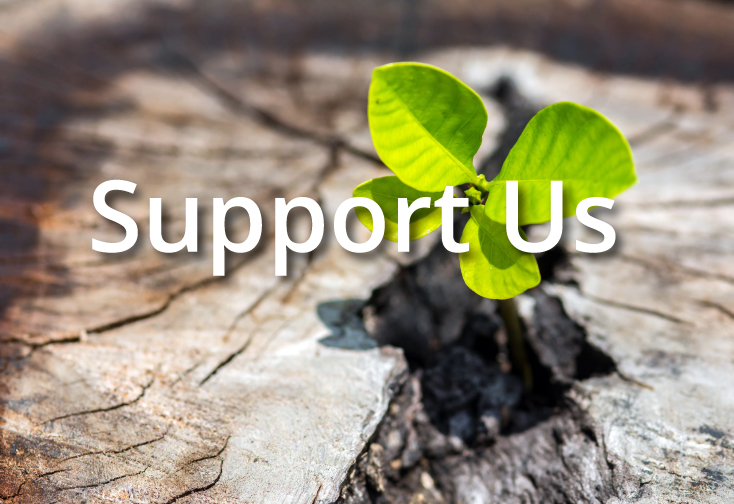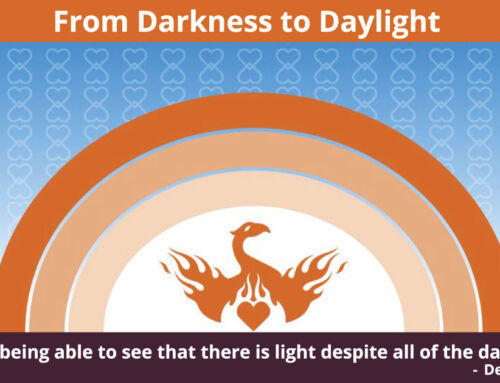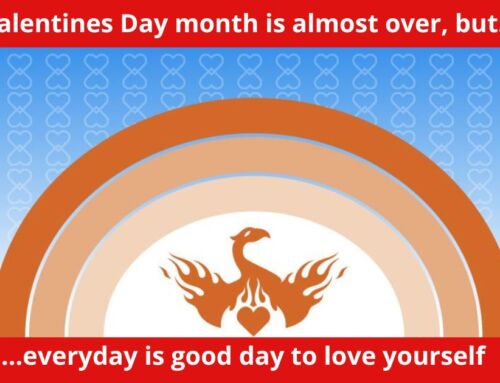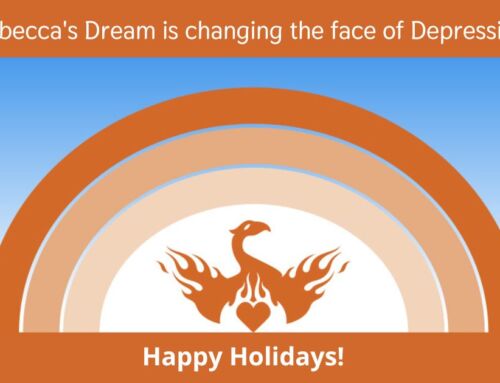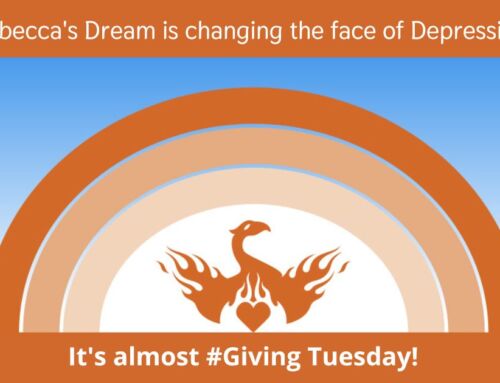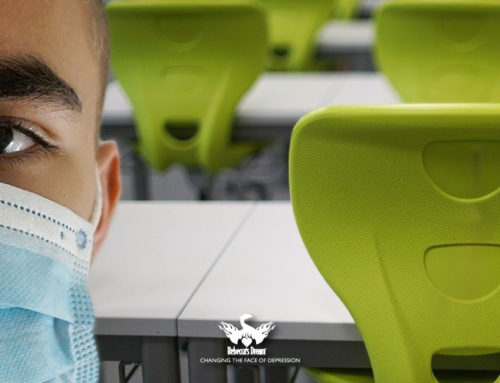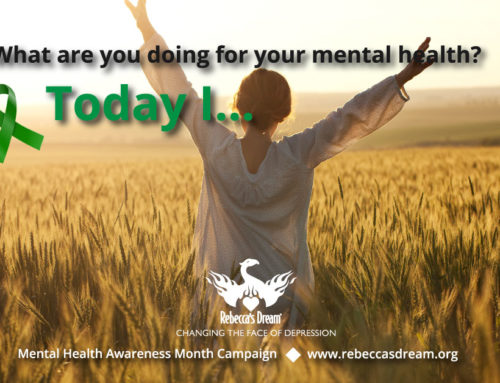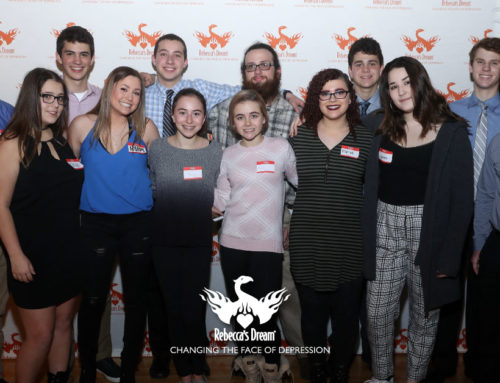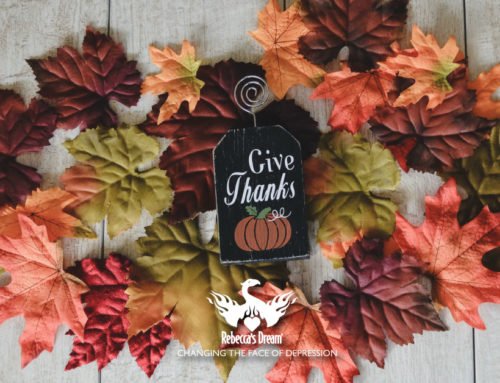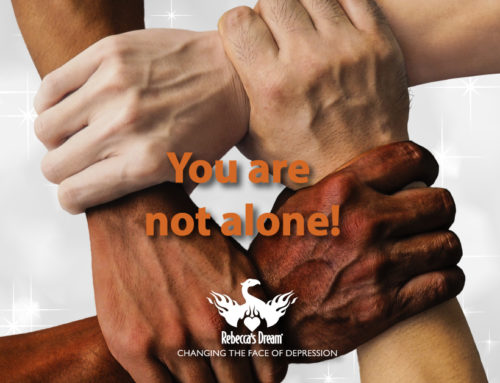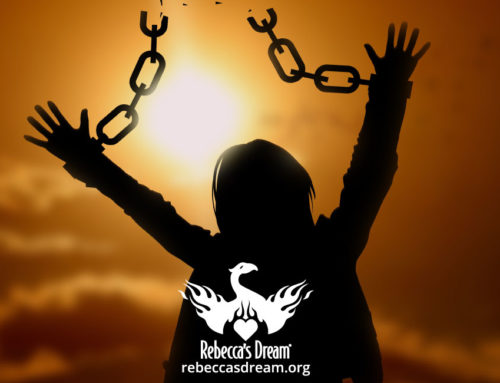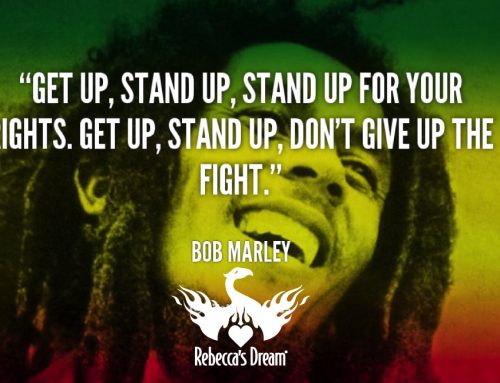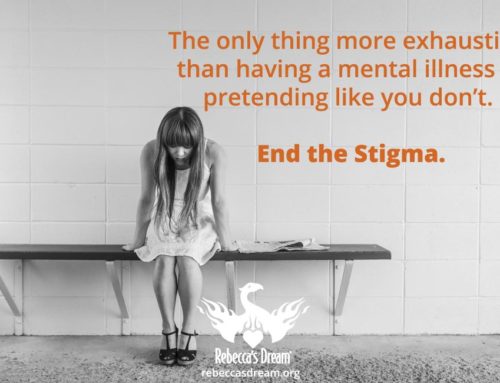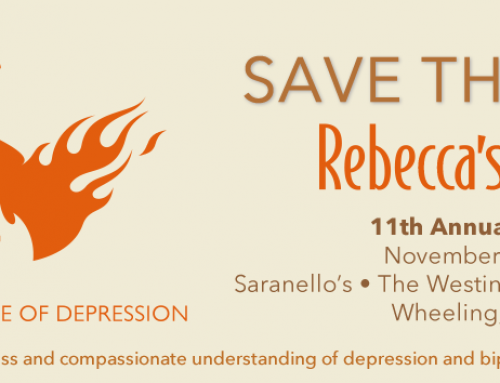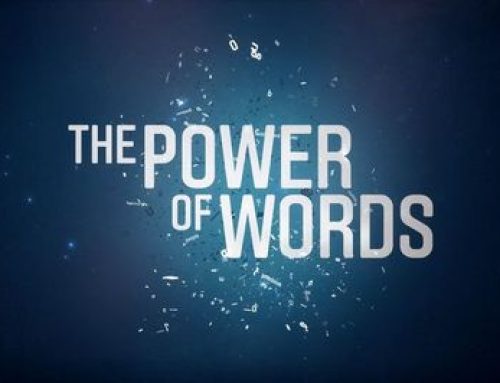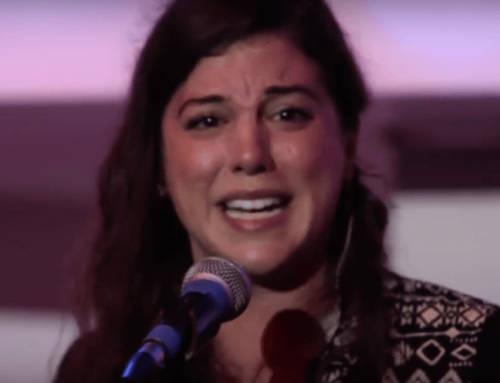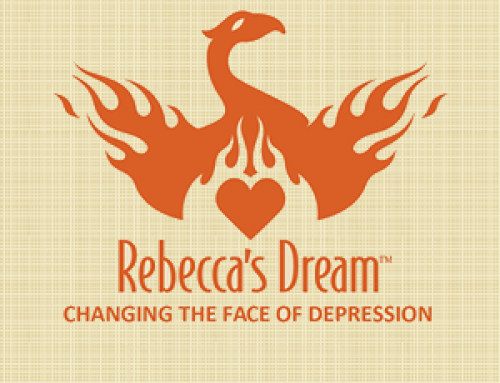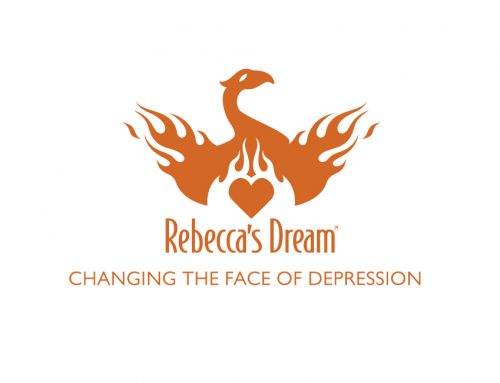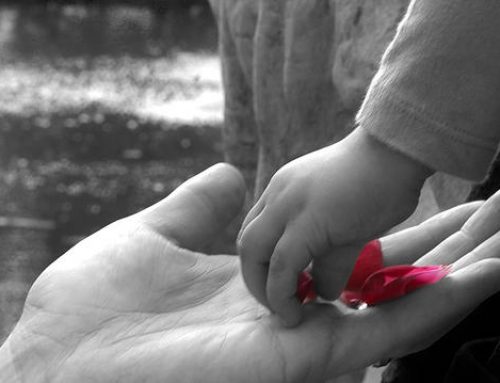Start the Conversation
A message from Haley Epstein about mental illness.
The 2018 Deerfield High School graduate and Rebecca’s Dream Junior Board member recently spoke at Glenbrook North High School about her experiences with mental illness. Haley stresses getting the truth out “normalizes” the topic so others living with mental illness issues are not afraid to talk about it. Most people don’t realize “the person beside you is going through the same thing.”
Epstein has struggled with anxiety and depression since the age of five and experienced hospitalization during her senior year of high school. “If you get help, you will have the skills that you need to cope,” she said, adding that “healing is not linear” in the sense that her struggles have not gone away after seeking treatment, but that her treatment has given her the skills that she needs to endure despite those struggles. “Things will always get better is not the right mindset,” Epstein said, highlighting that there will be new challenges to face as time goes on.
“It’s more like a roller coaster,” she explained. “If you don’t get help, you won’t have the skills to get through it.”
Haley has drawn upon her experience and is using it to help others in a number of ways. In addition to speaking at Glenbrook North, Haley also started the “It’s Okay to Not be Okay Movement” Haley spoke at RD’s “Take a Stand Walk” in Chicago this past May. She also represented Rebecca’s Dream during the application process of Deerfield High School’s School Chest Charity Drive.
“I wouldn’t change what I’ve gone through because it has shaped who I am,”
Epstein noted she has learned life lessons through her experiences she would not have learned otherwise. She has attended classes at the University of Wisconsin and is currently taking online courses at home with plans to transfer to Loyola for her next semester. Epstein’s long-term goal is no surprise. A social work major, she “hopes to work in a behavioral health or children’s center someday.”
In the meantime, Epstein wants everybody to remember that people frequently “aren’t what they show on the outside” and will continue to do what she considers to be the most important thing—
Start the Conversation.
Rebecca’s Dream College 2020 Scholarships in memory of Dr. Harlan Haimes
Rebecca’s Dream is a 501(c)3 Foundation, committed to serving the community by promoting awareness and compassionate understanding of depression and bipolar disorder as real diseases. The Rebecca’s Dream Scholarships are an opportunity for high school senior students to address the serious issue of stigma associated with mental illness.
Three applicants will be awarded a $1,500 scholarship each.
“Nothing in this world can torment you as much as your own thoughts.”
-HealthyPlace.com
“Announcing: Rebecca’s Dream’s Junior Board”
Welcome to the Dream Team!
This stellar group of high school and college students advocate for Changing the Face of Depression through Promoting Awareness and Compassionate Understanding of Depression and Bipolar Disorder as real diseases.
They raise positive awareness of mental health through peer-to-peer education and support, outreach, fundraising and informative presentations by bringing mental illness into the light.
Please join RD’s Junior Board and help further our mission and vision of compassion and understanding. We need you!
Contact : Kathleen Illes , Executive Director – killes@rebeccasdream.org
Upcoming Events
“IT’S ALL IN YOUR HEAD”
Author and illustrator Marlee F. Is a teen living successfully with depression. As Marlee struggled to understand her thoughts, feelings and moods she created “IT’S ALL IN YOUR HEAD.” Marlee’s passion became helping teens easily understand they are not alone during difficult mental health challenges ~ help she wishes she had during her early years of confusion and shame.
Mental disorders don’t discriminate.
One in five teens are affected by some form of disorder severe enough to impact their daily lives.
However, with professional help and self-care most teens feel better within 4-6 weeks.

Tips & Tools
10 Great Tips for Dealing with Depression in College
Depression is a serious and important issue on college campuses across the country. College students are susceptible to depression due to potential factors such as stress with school, work, or finances, or possibly feeling isolated after moving away from friends and family.
Source: Bestcounselingdegrees.net


